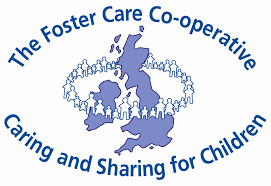 I had the pleasure recently to visit the Foster Care Co-operative, whose head office is based in Malvern, and which is a vibrant and successful non-profit brimming with purpose and values. The co-op was set up in 1999 by Laurie Gregory after 30 years working with local authorities as a senior social worker and finishing as a Deputy Director of Children’s Services. Over that time, he also had personal experience of fostering, looking after a child with disabilities for 13 years. He saw the need to offer an alternative to private and venture capital funded agencies as foster care was increasingly outsourced to the market. “I instinctively did not wish to start a ‘for profit’ company and, after meetings with my Chamber of Commerce and invaluable advice from Co-operatives UK, I chose the model of a multi-stakeholder co-op” he explained. “We have grown slowly by bringing new people to fostering.” The staff are unionised with the GMB, and it is a stable and happy team; it was a pleasure to meet. There is a sense of dignity across the work, in the central team, across the foster carers and in their contact with the children who are looked after. More widely, foster care is in difficult times. The contracting model of the outsourced market focuses less on the issue – the development of young people – and more on the management of the issue. With pressures on budgets, one of the challenges that commissioners face is matching cost and quality. The shift to look for the lowest cost, scoring less for quality can then generate other costs and unintended consequences, including worse outcomes for looked after children (an added challenge is the tendency of local authority commissioners to take an annualised view of budgets rather than look further out, planning more effectively over the years that a child might be with a foster carer). “I have been to meetings where commissioners talk of unit costs, or annual unit costs. Call them children please, I say” comments the co-op’s Director, Ian Brazier. In the current market, with a cut down model, national agencies are dominant – structured and financed through loans via Luxembourg to cut taxes, with taxable profits lost in the repayment of loans to the same owners. It was to understand the costs of a quality service that has been at the heart of a recent government stocktake of fostering (in England) – the Foster Care Co-operative was one of a handful of agencies to share data on an open book basis, to help them do that. The co-op has contracts with 54 local authorities, but it refuses to bid for contracts that are set up to deliver a quality that is lower than the values of the co-op would countenance. An example is the dedicated resource the coop employs to support foster carers with education and schooling for the children. One young person said: “The support my brother received from our carers has resulted in him going to university. After visiting him there, I think going to university is something I would like to experience too.” The two outstanding indicators of the co-op’s success are the length of time spent with a carer and the outcomes in terms of what children go on to do when they reach adulthood. The average for a placement nationally is just four to six months. With the Foster Care Co-operative, the average is three and a half years. And every child that has left the co-op in recent years has gone on into work or education. While foster care has to be seen as a later stage of support for children, stepping in where families can’t cope, the power of co-operation still makes a difference. The co-op is collaborating with other non-profits in the sector, working on the basis of shared values, and has launched a successful training programme in a joint venture with increasing take-up, to spread good practice. It is also piloting, with the local university, a programme to bring in foster carers with disabilities into the sector – a great potential example of asset-based social care. The Foster Care Co-operative is an authentic non-profit, led by values and shaped by the participation of those involved across what is a vital service for young people in need. Source: https://edmayo.wordpress.com Comments are closed.
|
News & JobsNews stories and job vacancies from our member agencies, the fostering sector and the world of child protection and safeguarding as a whole. Browse Categories
All
|
|
The Fairer Fostering Partnership
c/o TACT Fostering Innovation House PO Box 137 Blyth NE24 9FJ |

 RSS Feed
RSS Feed
